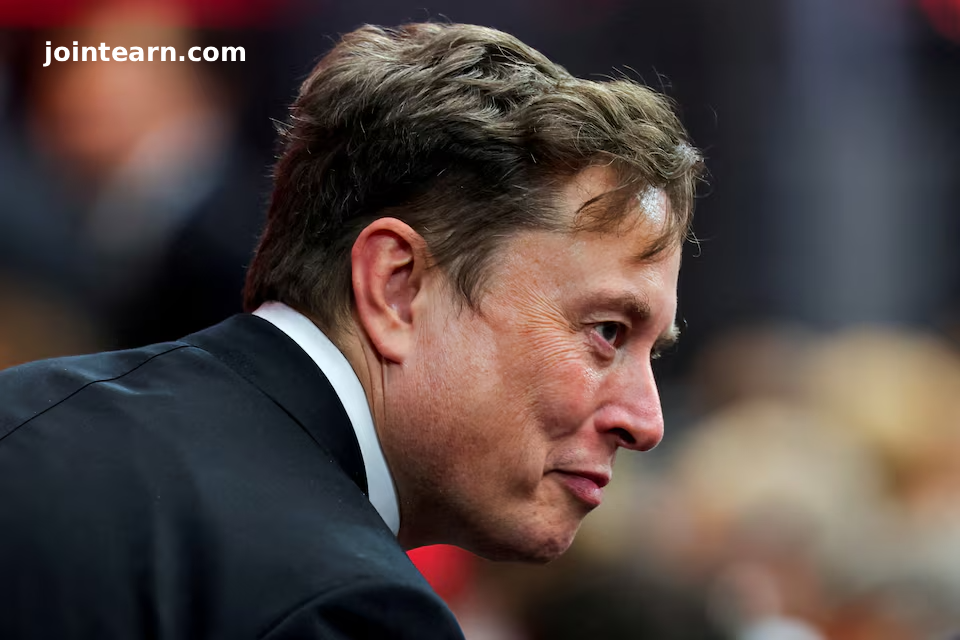
Elon Musk’s $1 Trillion Tesla Pay Deal Faces Mounting Resistance
October 29, 2025 — As Tesla’s shareholders prepare to cast their votes on November 6, the company’s $1 trillion compensation plan for CEO Elon Musk is drawing sharp criticism from labor unions, Democratic leaders, and corporate governance advocates.
The proposal, which would mark the largest CEO pay package in history, has reignited debates over executive power, accountability, and corporate democracy at one of the world’s most valuable companies.
Tesla’s board, led by Chair Robyn Denholm, has urged shareholders to support the deal, warning that Musk could walk away from Tesla if it fails. But opponents argue that the plan represents “unchecked power” and risks undermining shareholder influence.
Unions and Democratic Leaders Push to Block “Excessive” Musk Payout
Leading the opposition are several Democratic state officials and union-affiliated investment groups, who accuse Tesla of prioritizing Musk’s personal wealth over responsible governance.
“This is not pay for performance. It is pay for unchecked power,” said New York State Comptroller Thomas DiNapoli, who oversees 3.3 million Tesla shares through the state’s pension fund. “The idea that another massive equity award will somehow refocus a man who is distracted is both illogical and contrary to evidence.”
DiNapoli’s comments were echoed by New York City Comptroller Brad Lander, who compared Musk’s influence to “the era of robber barons,” warning that the package would further consolidate Musk’s control over Tesla’s direction.
Tejal Patel, executive director of the SOC Investment Group, which advises union pension funds, said Tesla’s request essentially asks shareholders to give up their voice.
Political and Investor Divide Deepens Over Musk Compensation
The fight over Musk’s pay has exposed a deep political divide in corporate America.
While Democratic leaders in states like New York and Massachusetts are calling for limits on excessive executive compensation, Republican-led pension funds in Texas and Florida are backing Musk’s massive payout.
The Florida State Board of Administration recently stated that the new package “aligns Musk’s pay with ambitious, measurable milestones that benefit all shareholders.”
In contrast, Massachusetts Treasurer Deb Goldberg and other Democratic officials argue that Tesla’s pay structure creates governance risks by giving Musk too much leverage.
Proxy Advisers and Institutional Giants Split on the Vote
Top institutional investors like BlackRock (BLK.N), State Street (STT.N), and Vanguard — which together hold billions in Tesla stock — have declined public comment. However, major proxy advisory firms are reportedly recommending votes against the package, citing governance concerns and lack of transparency.
Despite that, analysts say Tesla’s large retail investor base — many of whom are loyal Musk supporters — could tilt the balance.
One such supporter, Alexandra Merz (@TeslaBoomerMama), who has over 200,000 followers on Musk’s social media platform X, said she supports the plan:
“This pay package challenges Elon to grow Tesla’s capitalization by nearly $7.5 trillion and deliver groundbreaking innovations like robotaxis and AI robots. It’s tied directly to transformative value creation.”
Shareholder Vote Could Define Tesla’s Future
The outcome of the November 6 vote could have sweeping implications for Tesla’s governance, investor confidence, and Musk’s control over the automaker’s strategic direction.
If approved, the new plan would grant Musk stock options tied to achieving aggressive milestones in market capitalization, production growth, and technology leadership — including Tesla’s ambitions in artificial intelligence, robotics, and autonomous vehicles.
But critics say Tesla’s board is enabling a dangerous precedent where a single individual wields disproportionate influence over a trillion-dollar company.
Ann Lipton, a law professor at the University of Colorado, noted that many large investors may support Musk not just for Tesla’s future but for potential access to his other ventures such as SpaceX and xAI.
“Asset managers that hope to invest alongside Musk in his private ventures might prefer to stay in his good graces,” Lipton said.
What’s at Stake
With Tesla’s valuation hovering around $850 billion, Musk’s proposed pay deal could lift his personal fortune to record-breaking levels if performance targets are met. But the governance implications are just as significant.
Should the plan pass, it would cement Musk’s role as the most powerful executive in corporate history, testing the limits of shareholder oversight and executive accountability.
As the shareholder vote approaches, both supporters and critics agree on one thing:
The outcome will not only shape Tesla’s future but could set a new standard for corporate governance across the global tech and energy sectors.


Leave a Reply